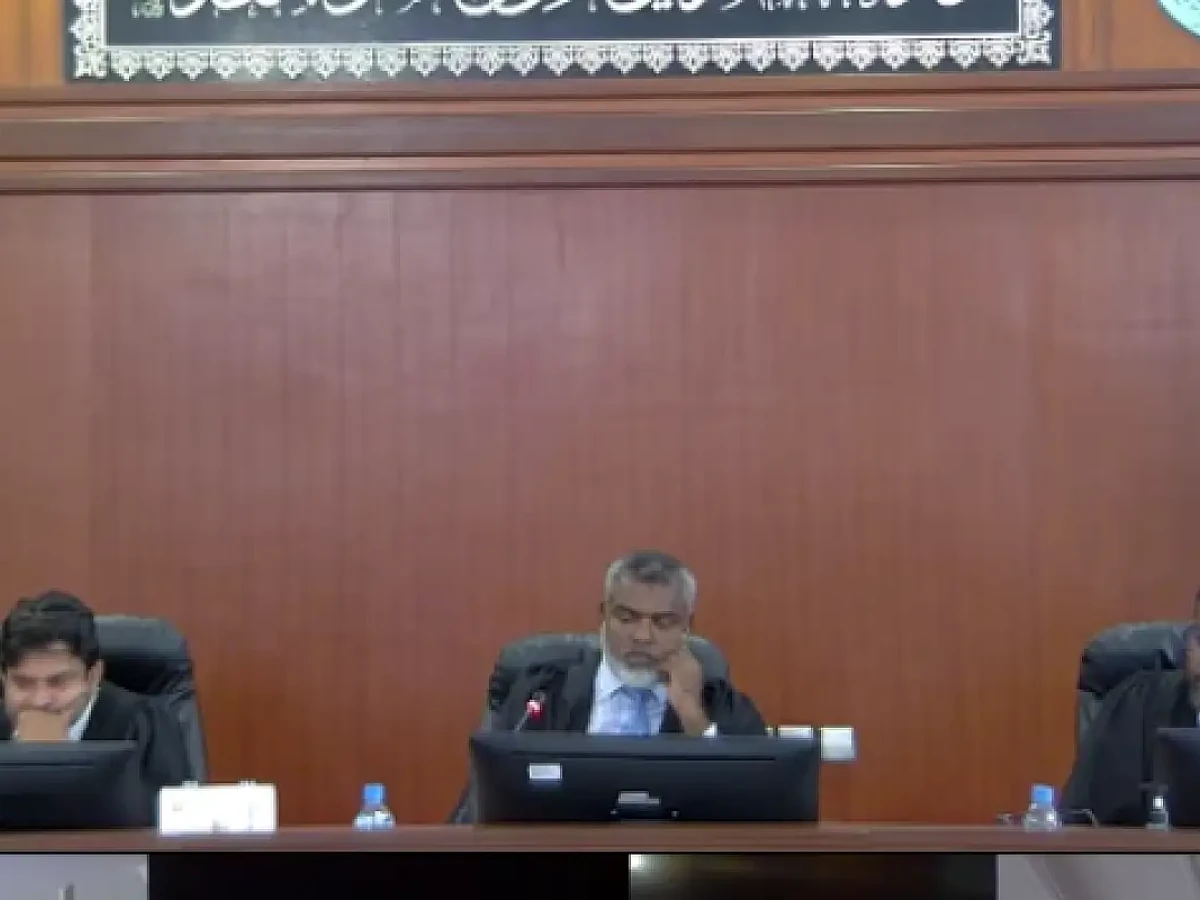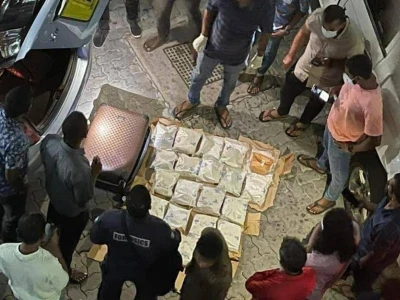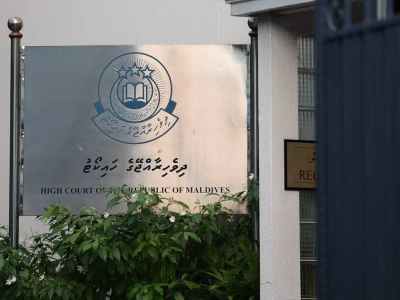
Furious Judge questions criminal justice system over clemency
"We are very concerned as judges that our verdicts are not enforced. If this is how it is, then why are we even doing this?"
By
Fathmath Ahmed Shareef
High Court judges have expressed concern and dissatisfaction over the release of a man who was sentenced to life imprisonment in a drug case by the previous government in just three years.
In January 2020, six houses were searched and six people were arrested on charges of trafficking in Diamorphine (Heroin). One of the two men convicted and sentenced to 25 years in jail was Hussain Zaheen, of Matheresmaage/L.Kalaidhoo He was also arrested in 2016 for drug trafficking, for which he was sentenced to 10 years in prison.
Zaheen was sentenced to life in prison in 2021. The prosecution charged him with drugs found inside the apartment, Ma. Sea Breeze/Male. In the same case, the prosecution also charged him with drugs found under the seat of his motorcycle. However, he was convicted only of the drugs found in the Sea Breeze apartment. Therefore, the prosecution appealed this acquittal in the High Court.
The prosecution, hearing its appeal points in the High Court on Monday, said the life sentence was withdrawn after Zaheen appealed. So the judge asked if the sentence had been served. In response to the question, the prosecution said it was not aware of the execution of the sentence.
The judge then asked Zaheen the same question. He said he was freed after the president pardoned him in the previous government. The aggrieved judge's questions were then directed at the prosecutor.
"What are you doing in court? What are you trying to make us do? Being sentenced to 25 years in jail for drug trafficking, and what is the result?" Judge Mohammed Niyaz asked the prosecution.
In response, the prosecution said:
-
The prosecution is well aware of the judge's concern and accepts it
-
However, what another state authority does is not something that the prosecutor has the word or authority to question
When the prosecution then tried to continue, the judge interrupted the prosecution and asked how much time the president can grant amnesty for serious crimes such as drug trafficking, once the sentence is enforced.
The prosecutor informed the judge that such pardons would be granted after one-fourth of the sentence was served, according to the law and it was not known on what basis Zaheen was released under the powers of the President. The prosecution also noted that there is also a humanitarian release.
The judge was still not satisfied, asking how a 25-year sentence imposed in 2021 could be commuted at all by 2023. The judge also asked whether Zaheen’s crimes could be pardoned in the name of humanity.
"My concern is that despite the PG proving charges in court to prosecute drug traffickers, and the verdicts we levy do not get enforced, then what are we doing here? Why are we playing this drama? Huge government, making laws," Justice Niyaz was clearly angry..
The judge also asked what the point was of coming to the court to appeal another part of the same case after he was granted clemency. He also scoffed that the case, which is now pending in the appellate court, saying it should also be withdrawn.
"We are very concerned as judges that our verdicts are not enforced. If this is how it is, then why are we even doing this? We should be ashamed as a State. What exactly is happening?".
When the judge's rebuke continued to be directed at the prosecutor, he said it was also upsetting for the PG to see criminals mock the prosecution and 'walk out scot-free' the next day.
Amidst this discussion Zaheen asked for an opportunity to speak and said that former President Ibrahim Mohammed Solih had pardoned him after he had completed a special programme. The judge responded to this by asking again, whether the amnesty was granted after the completion of the statutory period.
In response, Zaheen said he had been released on conditions. The judge asked what the conditions were and how much the corrections department was monitoring the situation. Zaheen replied that he did not know how much he was monitored, but that he was on-call whenever the corrections department required him to come in, for random urine samples and such.
According to the Amnesty and Commutation Act, people sentenced to life in prison for possession of drugs over 14 grams cannot be pardoned. The punishment may be commuted if certain criteria are met, or if one-fourth of the sentence has been served.
There is no circumstance in the law where Zaheen can be granted clemency.
At the end of the last government, then-President Ibrahim Mohamed Solih also pardoned some convicted of other serious crimes. They include former Vice President Ahmed Adeeb, the main instigator in the massive MMPRC scam.




